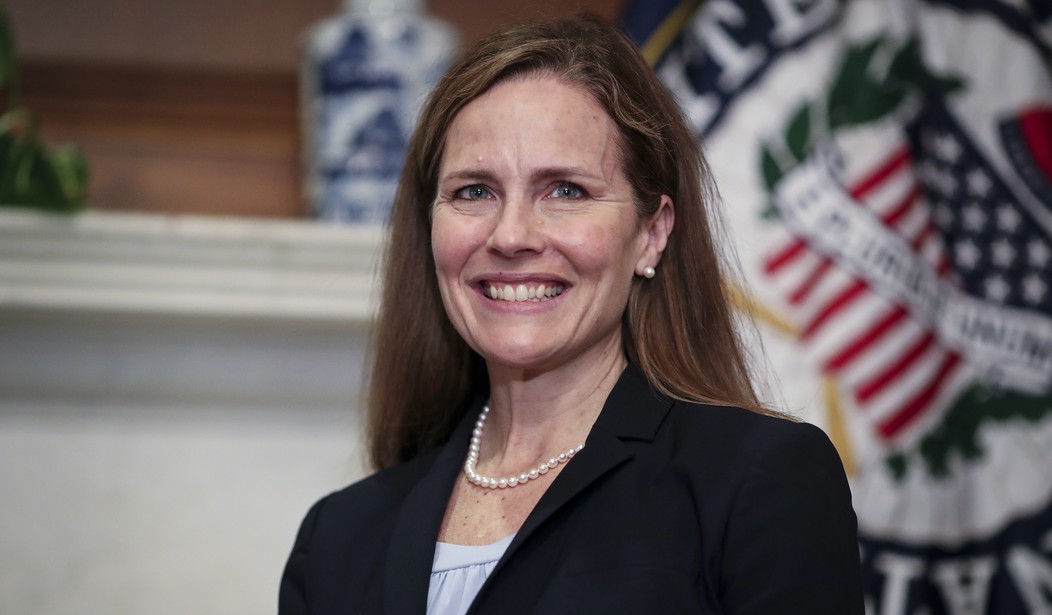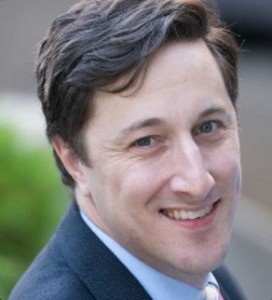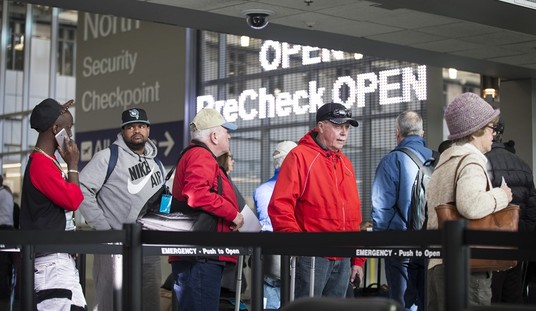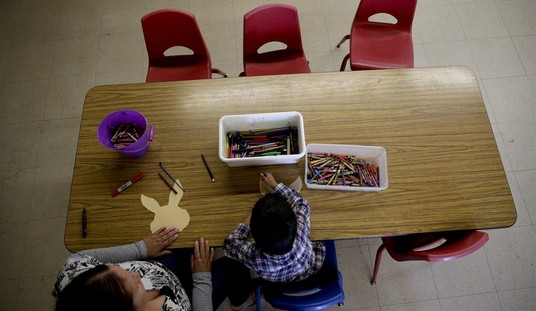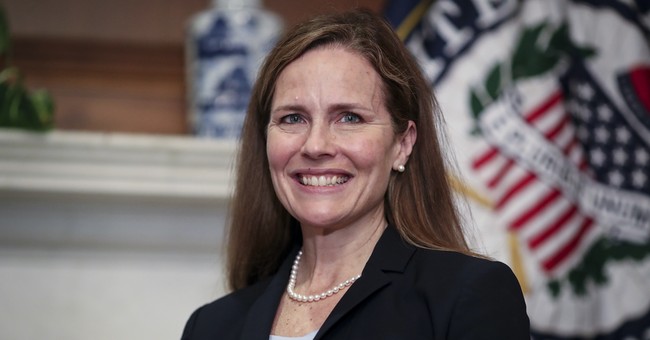
This is the second part of a comprehensive interview Iowa University law professor Derek Muller sat down for, which includes several topics: his mentor-mentee relationship with his former law school professor, Judge Amy Coney Barrett; her nomination announcement/acceptance speech at the White House and the confirmation hearings to come; elitism in the legal academic world; some of his recent, legal writings, and more. You can read Part I here.
Credit: Twitter, @derektmuller
When we last left the conversation, Derek Muller was explaining how Amy Barrett was more than just the University of Notre Dame law professor who taught him how to deal with the opposing attorney’s evidence in front of a jury — she’s become a mentor and family friend over the years they’ve known each other.
As National Review’s Kathryn Jean Lopez wrote in a late September piece titled, “In a Sane World, America Would Have Just Fallen in Love with the Barrett Family,” published just after news broke on President Donald Trump’s choice of Judge Barrett to replace the late Associate Justice Ruth Bader Ginsburg, much of the sound and fury over Barrett’s nomination to the Supreme Court, to paraphrase William Shakespeare, it turned out, signified nothing.
In my piece about the nomination ceremony in the White House Rose Garden, I concentrated on the gracious way Judge Barrett praised not only Ginsburg, but the late jurist’s collegial relationship and personal friendship with the late Justice Antonin Scalia. But the judge said much more than that, which revealed her character and how she plans to approach the hearings and, potentially, a lifetime appointment to the Supreme Court.
I asked Derek what most struck him about what she said in her speech.
He said:
“I think Judge Barrett was very gracious to all parties who were involved: in her life, in her family, in her nomination process, and I think, respecting the work of the late Justice Ginsburg and the late Justice Scalia. One of the things that she emphasized, which I think was important, is that you want to have people who are collegial on the bench, and people who are going to exercise their best, good faith in discharging their duties.
To me, it was sort of a pitch-perfect speech, that identifies her humble and rightful place…”
He stopped himself and laughed.
I shouldn’t say ‘rightful.’ That’s not the right term. Humble and appropriate place of a judge serving on the Supreme Court.”
He seconded my assessment of how masterful the speech was, calling it “great,” then added that he “look[s] forward to hearing more from her in the years to come.”
I also asked him his take on two other parts of Judge Barrett’s remarks — on her approach to balancing being a woman of faith and being a judge, and the end of it, in which she made a point of declaring that she’s ready for the onslaught from some on the Senate Judiciary Committee who will attempt to tear her reputation to pieces.
He replied:
“Getting back to the ‘gracious’ point, when you read her scholarship, or you read her judicial opinions, she is not one who is out there painting caricatures of the other side. She’s not out there to be hostile to opposing points of view. She’s consistently fair-minded, and she consistently offers the most generous interpretation of an opposing party’s position as she can, I think, in the way that she presents evidence — and the way that she articulates judicial decision-making.
It gets back to the spirit of humility, of being gracious. And I think her confirmation hearing [for U.S. Court of Appeals for the Seventh Circuit, in the fall of 2017] was a little bit contested… can we put it that way?”
I agreed that someone could. He continued:
“And she’s seen how the last couple [of hearings] have gone for the Supreme Court. You could enter that with a spirit of war or bitterness, and yet, she was sort of very cognizant to make a different choice — to indicate that she wants to work with senators in this process. I think, to the notion that she’s trying to ‘turn down the temperature’ a little bit, is exactly right.”
To close out our conversation, I asked Derek his thoughts and feelings about knowing someone who’s likely about to join the High Court.
He told me:
“It’s surreal. I don’t want to speak on behalf of everyone at Notre Dame Law School, right? It’s a small, closely-knit community, and seeing one of your former professors nominated is not something you see every day.”
He laughed, then added:
“Certainly not something, I think, any of us would have anticipated, even four years ago. So, it definitely feels special to have someone from your alma mater….nominated. I think that’s exactly right.”
On a side note about Derek Muller’s work as a law professor:
When he was still a faculty member at Pepperdine’s law school back in January, Derek wrote an opinion piece for the Los Angeles Times, “California’s Election Rules Make it Hard to Hold Politicians Accountable,” which details how California elections law makes being a challenger to an incumbent, well, extra-challenging. Though, as he noted in our interview, the law for non-presidential year elections has very recently changed to ease the early filing burden. Instead of 13 months before an election, potential candidates now have until the summer prior to the election date. It’s a start.
In a WaPo op-ed piece published in the wake of Barrett’s nomination by the president, O. Carter Snead, a fellow law professor at Notre Dame, assures progressives that he “[has] known Barrett as a friend and colleague for more than 15 years. And [he] can assure worried liberals that there is nothing about the prospect of a Justice Barrett that should cause them to fear,” pointing out that “[s]he has an incandescent mind that has won the admiration of colleagues across the ideological spectrum.”
Including law professors at Harvard, it’s worth noting — the exact kind of jurist she would have as colleagues, if she’s confirmed to the Supreme Court of the United States later this month.
I wish her well, and ask RedState readers to join me in praying for Judge Barrett, her family, and all of her friends.

